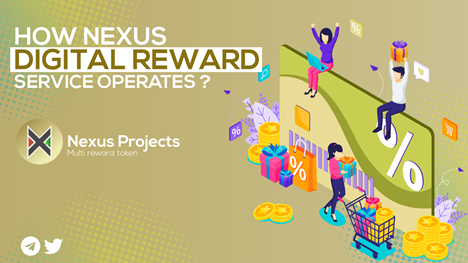Customer loyalty is highly prized in today’s market. With fierce competition among retailers, companies want to not only retain and reward consumers but also keep their brand relevant and the recognition of the brand in their customers’ minds. As customer-centric business models become the standard, loyalty programs are a strategic investment that businesses cannot afford to miss.
Retailers have used point systems to retain loyal consumers since the beginning of time. Sometimes you have to offer people a reason to keep buying from you. Businesses provide special discounts to clients who make repeat purchases in order to promote customer loyalty. This method is known as a loyalty program.
Loyalty programs, when done correctly and with the consumer in mind, may make customers feel good about purchasing from a given brand. There are several sorts of customer loyalty programs that may be used to improve consumer engagement.
Did you know that boosting clients’ or customers’ retention rate by 5% may increase earnings by up to 95%? However, far too frequently, businesses prioritize acquiring new customers above caring for current ones. It’s understandable that some businesses desire to expand their clientele. But how can businesses keep the customers who are more inclined to buy from them in the future?
An effective customer loyalty program, on the other hand, has shown to be an excellent technique for retaining existing consumers and retaining them for a long time. When brands include the ability to incentivize referrals, the advantages of developing customers’ loyalty programs become increasingly evident. The shopper receives compensation for spreading information about a product or business, while the business in turn makes more profit and acquires more customers.
How Customer Loyalty Programs Operates
Customer loyalty programs simply succeed because individuals unconsciously like to be loyal. When a customer is granted incentives for purchasing things from a business on a regular basis, he or she is rewarded, feels special, and is likely to uninstall competing applications as well. Having said that, the incentives provided must be substantial in order to keep loyal customers engaged.
Loyalty programs have numerous purposes, including increasing business activities, improving sales and revenue, strengthening the relationship between customers and businesses, and keeping customers returning on a regular basis.
One critical component of accomplishing these objectives is ensuring that the program provides value to the client. If the program’s benefits are unappealing or boring to customers, the program may not be a success. If the perks are appealing, however, the program can assist improve sales and motivating customers to return for their next purchase.
The Backlogs:
Traditional loyalty programs present challenges for both businesses and customers, particularly in terms of transparency and trust. Companies are concerned with assessing liability, personalization, increasing conversion rates, and ensuring channel consistency. Customers face restrictions and rules, incentive options, and the most prevalent issue: losing track of collected reward points.
Companies that want to stay at the top of their game are striving to design user-friendly, secure, and adaptable systems that engage their customers. Blockchain has the ability to improve both enterprise and customer experience while using loyalty programs. Nexus Project, a blockchain-based company, is addressing these backlogs with its secure, user-friendly, intuitively designed digital rewards/points services.
Nexus Project — Blockchain-Powered Digital Rewards/Points Services
Nexus Project is a payment gateway that leverages blockchain to provide a digital payment infrastructure that will contribute to economic development by increasing accessibility and encouraging consumption. Nexus Project deploys unique digital rewards/points services to enable merchants to implement a reward system for loyal customers, ensuring customer retention.
Using blockchain technology, Nexus Project is able to provide merchants and business enterprises with a loyalty payment infrastructure that is secured, transparent, efficient, functional, and cost-effective.
In collaboration with numerous firms in the UAE, Nexus Project has made the loyal point payment services readily available and can be used in many retail outlets, restaurants, and other establishments, primarily in Dubai and Abu Dhabi. Stores can also become members without having to invest a substantial sum of money to install the system, as is generally the case with traditional point payment services.
Nexus Project extends even beyond conventional loyalty point systems. By deploying Nexus Project, the signing and settlement of significant acquisitions such as real estate and other extensive properties will be made possible. Large transactions of this kind have largely been impossible with traditional payment methods. Due to issues with identity verification and payment screening, there have been no businesses that go as far as settling real estate contracts with smart contracts up until now.
Blockchain’s smart contract will ensure trust between transacting parties, and will ensure reliable asset collateral, and trusted personal identification systems in transactions that involve large enterprises and businesses.
Final Words
Customer loyalty is all about offering incredible experiences and keeping an audience excited to stay with a brand for a longer period of time. It is closely related to the expansion, retention, and scalability of any business or brand. While most loyalty programs need some effort and organization, Nexus Project has streamlined the implementation process to make the onboarding of its blockchain-based loyalty point services easy and hassle-free.
Brands will be able to develop safe and adaptable incentive programs that not only delight and retain customers but also boost their bottom line by utilizing Nexus Project’s loyal point service. Thanks to blockchain technology!
